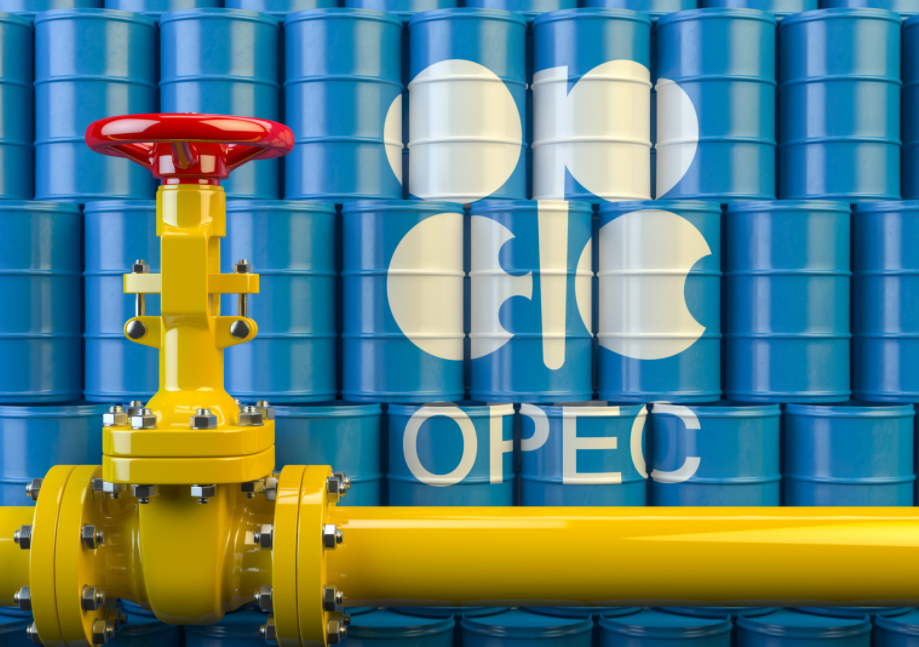Wed Jan 19, 2022
Wednesday / January 19
Geopolitical impact on oil
Oil prices soared to their highest level since 2014 on Tuesday amid concerns over tensions in Western Asia and Eastern Europe.
Military-regional tensions originating from the United Arab Emirates and Russia supported brent crude futures to rise $1.03, or 1.2%, to $87.51 a barrel. US West Texas Intermediate (WTI) crude futures were up $1.61, or 1.9%, to close at $85.43 a barrel.
Supply concerns were heightened as the Houthi group in Yemen attacked the UAE city of Abu Dhabi and the Saudi Arabian-led Arab coalition launched airstrikes on the Iran-linked group in response.
The attack on one of the Washington's leading Gulf Arab allies takes the years-long Yemeni war between the Houthis and the Saudi-led coalition to a new level. As Washington and Tehran seek to resurrect the 2015 nuclear deal, Houthi-Arab tensions have yet to overshadow the future of the time-hungry Vienna talks.
Opec forecasts
OPEC, the Organization of the Petroleum Exporting Countries, adhered to its forecast of strong growth in world oil demand in 2022, in a report released on Tuesday.
In its monthly report, OPEC said it expects world oil demand to increase by 4.15 million barrels per day (bpd) in 2022, unchanged from last month's forecast. Oil use is expected to exceed the 100-million-barrel mark in the third quarter, again in line with last month's forecasts.
OPEC said interest rate hikes, which are expected to restrain inflation in 2022 and seen by some as a risk to oil demand, are unlikely to affect the outlook. The report stated that the expected US interest rate hikes in the second quarter will coincide with a period of increasing fuel demand in the northern hemisphere.
Monetary actions are not expected to curb the global economic growth momentum, but rather serve to recalibrate overheated economies, the oil market is expected to be well supported through 2022, OPEC said.
Latest in Europe
Germany has signaled that it may halt the Nordstream 2 pipeline if Russia invades Ukraine.
US Secretary of State Antony Blinken will visit Kiev on Wednesday to discuss "joint efforts to further deter Russia's aggression against Ukraine" with German, British and French officials, stepping up diplomacy after talks with Russia stalled last week.
Blinken will then meet with his Russian counterpart, Lavrov, in Geneva on Thursday.
As conflict fears rise, Britain said this week it has started supplying Ukraine with anti-tank weapons, Canada's foreign minister visited Ukraine. German Foreign Minister Annalena Baerbock held talks in Moscow and Kiev to reduce tensions.
Baerbock warned that Moscow would suffer if it attacked its neighbor. Chancellor Olaf Scholz signaled that Berlin's response could include stopping the Nord Stream 2 pipeline, which brings gas to Germany. Scholz had previously said that Germany was open to sanctions in the event of a Russian attack and everything would be on the table.
Asked about the pipeline after meeting with NATO Secretary General Jens Stoltenberg, Scholz said there will be a high price to pay for Moscow and everything will have to be discussed if there is a military intervention in Ukraine.
Meanwhile, the Swedish Armed Forces said six Russian landing craft had left the Baltic Sea, according to the Dagens Nyheter newspaper.
US stocks
In the US, the main averages fell sharply on Tuesday.
The Dow Jones Industrial Average closed at 35,368.47, down 543.34 points, or 1.5%. The S&P 500 fell 1.8% to 4,577.11 and the Nasdaq Composite Index fell 2.6% to 14,506.90, hitting a three-month low.
The tech-focused Nasdaq closed below its 200-day moving average, down more than 10% from its most recent high for the first time since April 2020. The small-scale benchmark Russell 2000 fell about 3.1%.
US markets were closed on Monday for the Martin Luther King holiday.
Goldman Sachs shares fell nearly 7% on Tuesday after the bank failed to meet analysts' fourth-quarter earnings expectations.
